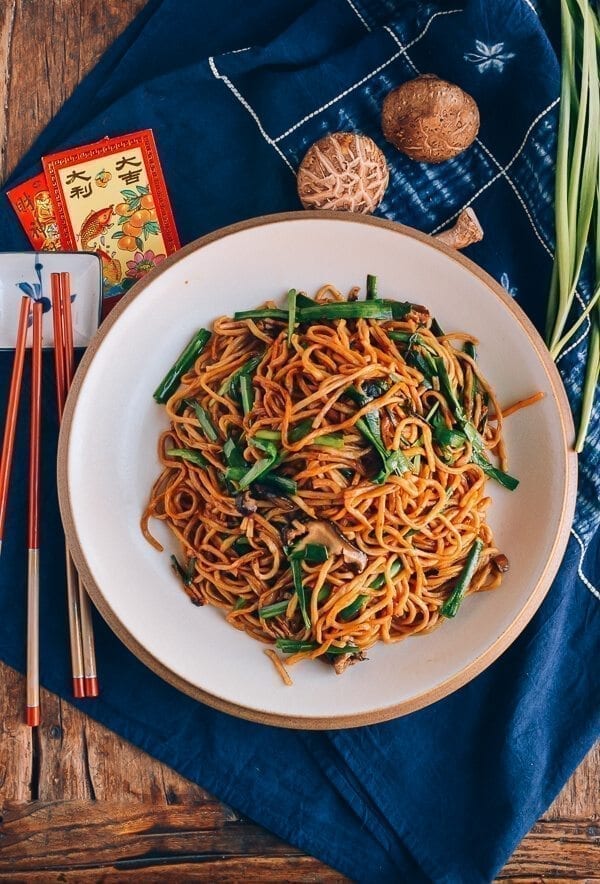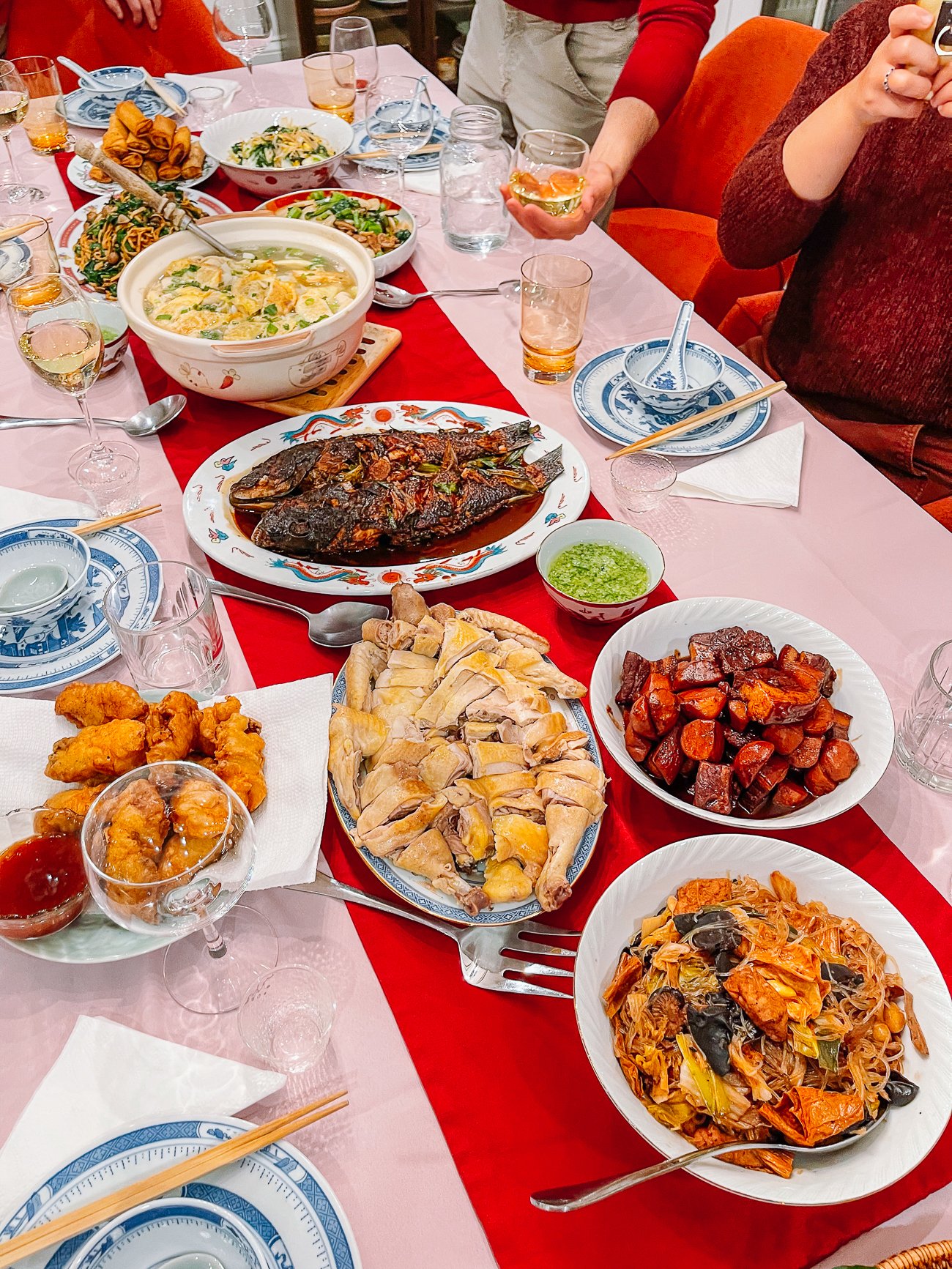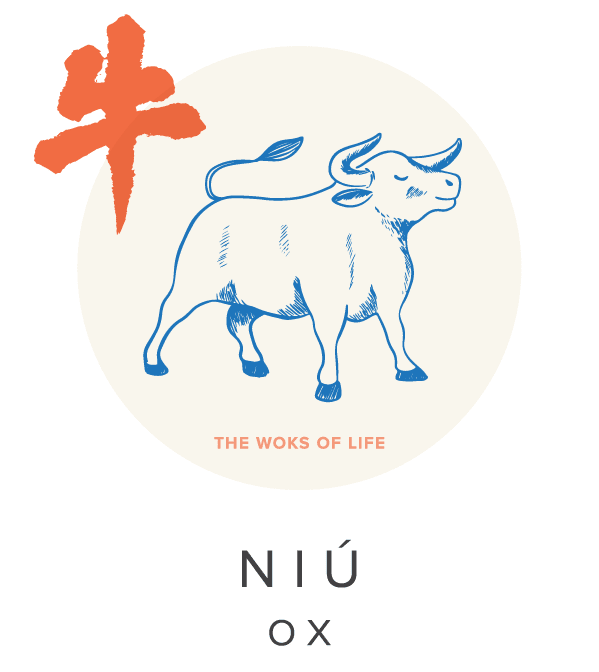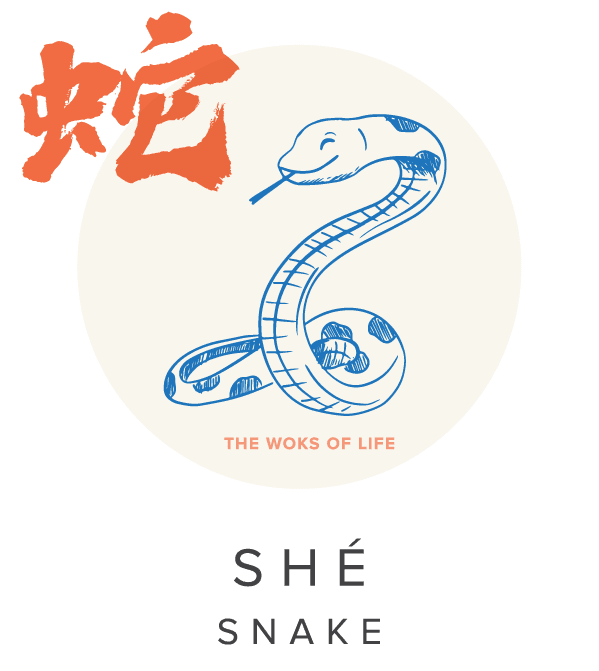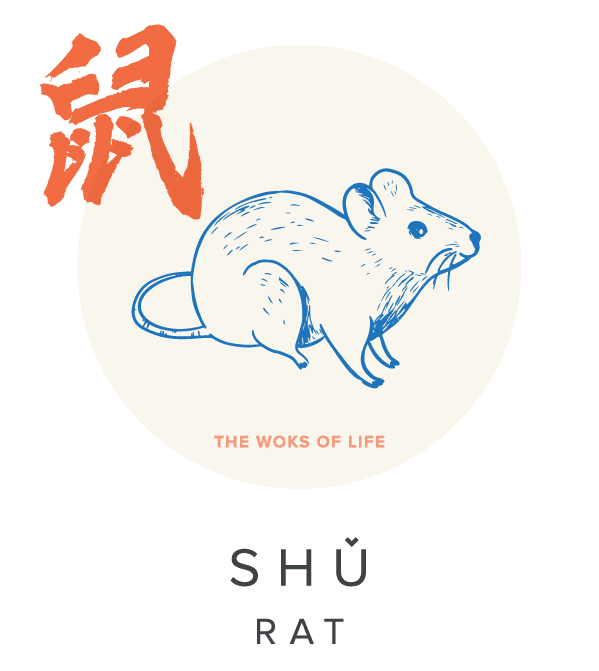Half the fun of Chinese New Year is reviving all the traditions around the holiday. There’s nothing better than getting together with family and friends to celebrate with the special sights, sounds, and tastes that only come around once a year.
It’s a time of togetherness and abundance, which means a bit of planning is in order to ensure everything goes smoothly.
A CHINESE NEW YEAR CHECKLIST:
WHAT TO DO AND WHAT TO AVOID
And as with anything Chinese New Year-related, there are some key superstitions to avoid! We’ve got a rundown of must-do Chinese New Year traditions, as well as a handy checklist below for what to do and what not to do. This will help you avoid accidentally ruining your luck for the year ahead!
DOS: What everyone should do for Chinese New year
- DO decorate with lots of red decorations.
- DO clean your house before Chinese New Year.
- DO remember to hand out red envelopes to children and unmarried young adults if you are married and older.
- DO wish everyone a happy new year when you see them. Check out our post on Chinese New year greetings, complete with pronunciations and recordings in both Mandarin and Cantonese.
- DO make sure you address elders first when you see them. You might just get some fat red envelopes for that!
- DO wear new clothes, or at least something red, and avoid black and white.
- DO go home and eat with your parents on Chinese New year. It may not seem that big a deal to you, but it is for your parents!
- DO bring abundant gifts to your family and hosts during Chinese New year celebrations. Fruits (especially oranges, tangerines, pomelos, and dragonfruit; avoid pears, which represent parting ways), live plants (such as lucky bamboo, colorful orchids, money plants, and citrus trees), and candies are safe gifts and always appreciated. You could also make Chinese New Year Sweet Rice cakes to give as gifts.
DON’Ts: WHat you shouldn’t do during Chinese New year
- DON’T start any arguments or bring up any negative topics. No profanities or swearing on Chinese New Year’s eve and day.
- DON’T cry on Chinese new year. Try to avoid sad memories!
- DON’T clean on the day of Chinese New Year, as you may sweep your luck and good fortunes away!
- DON’T do laundry, wash or cut your hair on New Year’s Day (the day before is fine) but you don’t want to wash away your good luck!
- DON’T break any dishes or glasses! Be extra careful not to break anything, because it is bad luck on Chinese New Year’s day.
- DON’T eat or make porridge or congee, because it sets an inauspicious tone, foreshadowing a poor year for you.
- DON’T borrow money, because it’s a sign that you will need money and be in debt in the new year.
- DON’T give any unlucky gifts! Clocks or watches, knives or other sharp objects, shoes/slippers, mirrors, scented candles, cut flowers, and anything in a set of four (an unlucky number in Chinese culture) should never be given as gifts!
Shop Early for Chinese New Year
Do your planning and shopping early for Chinese New Year. Like most holidays, there’s always a rush on food and decorations in the days leading up to the holiday.
Our family buys things early—partly because we can’t resist planning ahead, but also to ensure that we have enough provisions for the celebration, with leftovers after the holiday (an auspicious gesture that foreshadows a plentiful new year).
Plan your Chinese new year menu ahead of time! Don’t forget to plan out your auspicious and symbolic dishes depending on your hopes for the year: wealth, happiness, harmony? What’s on the menu for you?
Check out our Chinese New Year menus for all skill levels, our menu planning guide, and our full Chinese New Year Recipe Index with all of our Chinese New Year recipes!
As we mentioned earlier, Chinese New Year also calls for a fresh outfit! It’s common to buy new clothes for the new year. If you’d rather not buy something new, just make sure you’ve got something red ready to wear.
Decorating the House in Red
Preparations for Chinese New Year always involve decorations, including hanging lanterns, Chinese letters with auspicious sayings, zodiac animal red paper cuttings, and the upside-down fú character (福), which means good fortune.
You will not notice unless you recognize or read Chinese characters, but the fú (福) character is usually inverted. 福 means “good fortune.” Displaying the character upside down means that good fortune will “arrive” or “pour out.”
Support your local chinatown
Chinatown will always have the best and most festive selection of Chinese New Year decorations for any aesthetic! It’s one of the most exciting sights of the year—street stalls popping up with bright decorations and gleaming packets of red envelopes waiting to be stuffed with cash.
Whether you want fun cartoon characters or something a bit more traditional or classy, there’s something for everyone. The celebration technically lasts for 15 days, so you will be able to put those decorations to good use.
Chinese new Year Cleaning
Clean the house BEFORE Chinese New Year—not on Chinese New Year’s Day. It’s time to clean out all the bad juju from the past year and start off with a clean slate.
That means a DEEP CLEAN. Dusting is very important. Get rid of all the cobwebs and crust of the previous year that might hold you back in the year ahead!
Just don’t sweep or clean on Chinese New Year’s Day, because superstitions say you’ll be sweeping your good luck and fortune away!
Similarly, refrain from washing clothes or washing your hair on New Year’s Day (take care of those things the day before).
Take out the garbage before the new year as well, making sure to go through the whole house.
Honoring Ancestors
Honoring and remembering ancestors who’ve passed away is a tradition that probably goes back to the very start of the holiday itself. Preparing food and drink in the morning and putting them out to invite ancestor spirits to dine with the family is a common tradition.
We remember it well from our childhoods. In the morning, we set out a whole poached chicken, whole roasted or braised pork belly, and whole fried fish with bowls of rice.
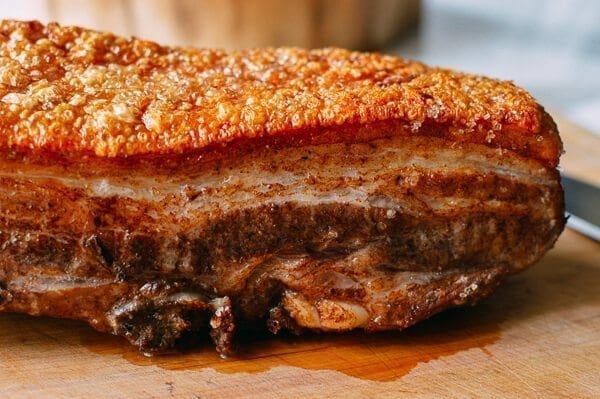
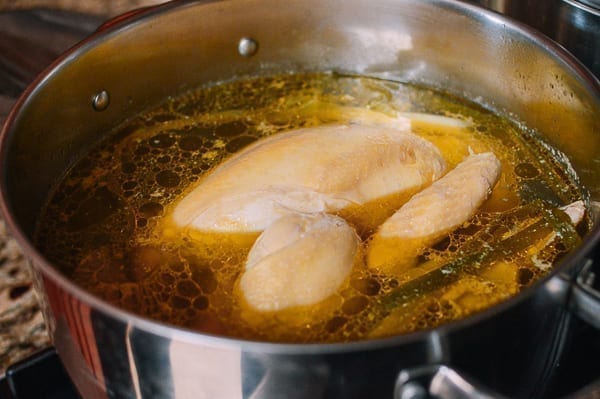
Fruits like oranges and tangerines, tea, and wine accompany the food on the table, along with burning incense. The food was always set aside and reheated for the feast later in the day!
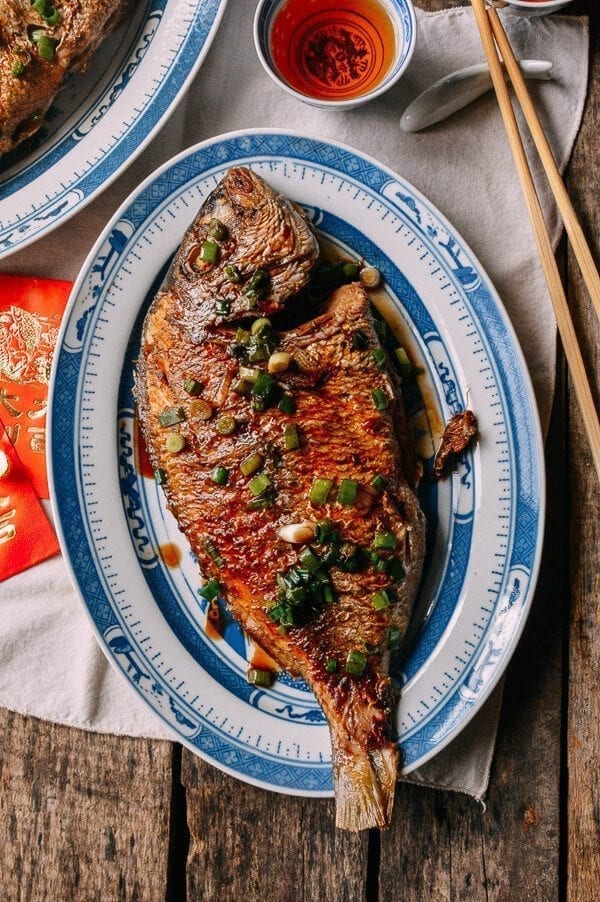
CHinese New year Family dinner on New Year’s Eve
Coming together on the eve of Chinese New Year is a long-time tradition. The meal even has its own name: nián yèfàn (年夜饭).
A mass migration of people (especially the younger generation) happens every year from large Chinese cities back to rural villages. Trains and all forms of public and private transportation are operating at full capacity. This meal is often the first that families enjoy together for the two-week holiday.
Outside of China, Chinese New Year is not generally recognized as an official holiday, so overseas Chinese have to take personal vacations or holidays to make the trip back home for New Year’s Eve dinner.
You can read more about annual migration and other fun facts in one of our first Chinese New Year menu posts.
Visiting family and friends
Visiting extended family and friends during the week of Chinese New Year and exchanging gifts is a Chinese New year tradition that goes on throughout the 15-day holiday.
This process of visiting family and friends is called bài nián (拜年), in which you wish everyone a happy and healthy new year. Common greetings include “xin nian kuai le” in Mandarin or “gong hay fat choy” in Cantonese.
It’s also a great opportunity for people to catch up on their lives and enjoy a meal together. Brush up on your greetings, and impress your elders with some thoughtful well wishes!
Red envelopes and gifts
When visiting family and friends, remember to prepare your red envelopes and gifts!
It’s considered rude to show up at someone’s home empty-handed, so be sure to bring fruits, candies, plants, and/or something that your hosts will enjoy. (See our “Do’s” list above for gift ideas.)
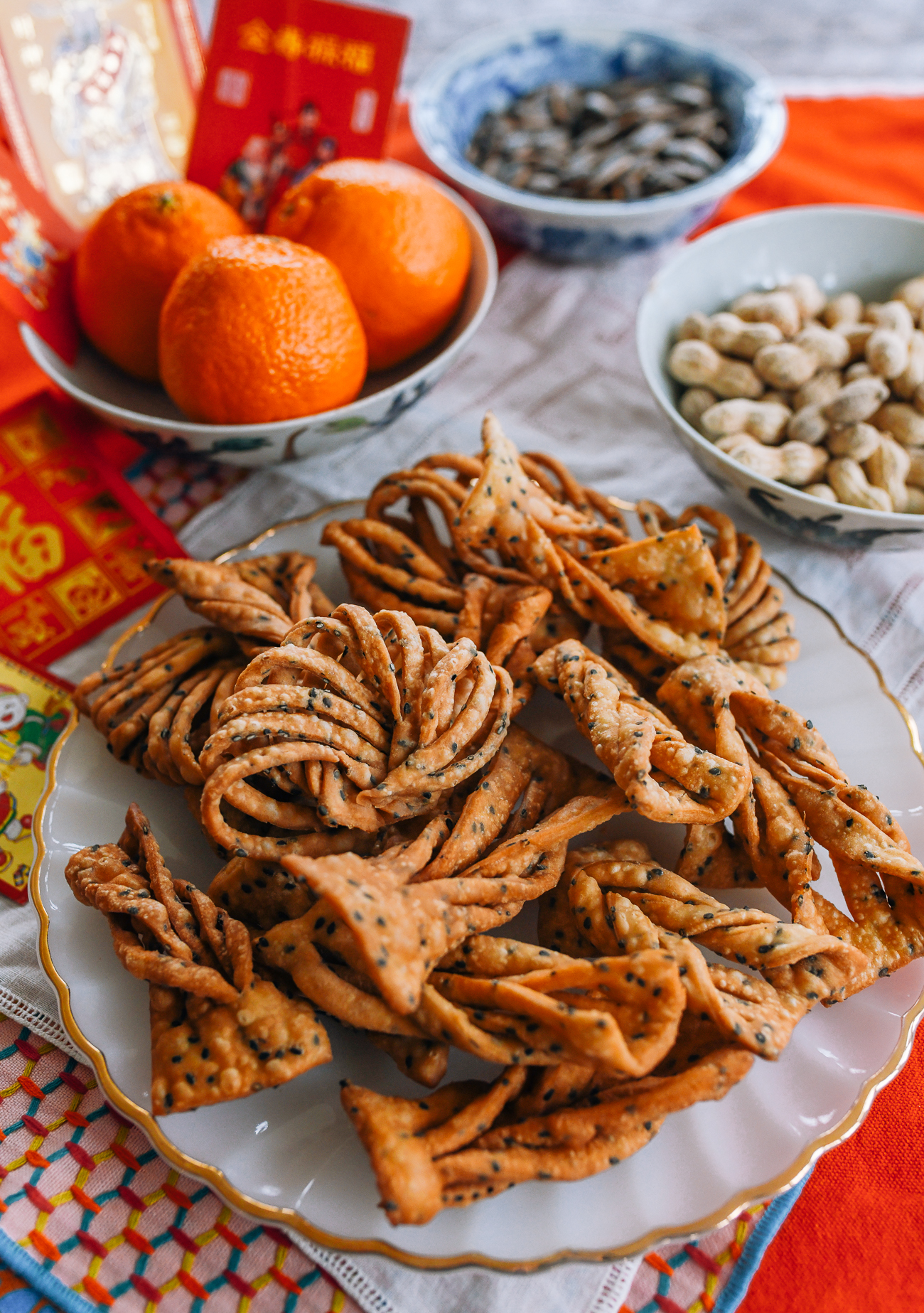
All children and some elders receive red envelopes. There’s no official age cutoff.; technically, unmarried children are still eligible. That said, we’ve personally established the unwritten tradition that you have to be attending school to receive one.
As for older people, retirement (65 and over) seems to be an eligible age. We give red envelopes to elderly parents and grandparents, though this practice depends upon your relationship and family tradition.
Sarah and Kaitlin have been exchanging red envelopes with their grandmother for quite some time now, which makes grandma very happy.
Sarah, who recently married her husband Justin, is now technically ineligible for red envelopes. It’s her turn to give them out to elders and children in the family!
While there are some rules and guidelines, giving out red envelopes really does come from the heart.
Fireworks and parades
Chinese New Year has a long history and many myths, one of which is about the mythical beast called Nian.
Nian just happens to sound like the word for “year” in Chinese. The myth says that Nian would show up every New Year’s Eve to eat people and livestock!
To scare away the monster, people displayed red everywhere and burned crackling bamboo. Since then, lighting fireworks has become a tradition to celebrate the lunar new year.
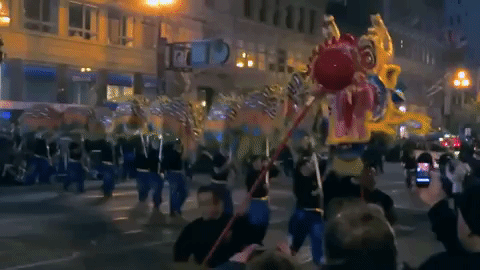
Dragon and Lions are powerful and auspicious symbols in Chinese culture. Thus, their dances are the centerpiece of a good Chinese New year parade or festival. You can see different charitable groups and associations in Chinatown parading dragons with their own volunteers. They visit businesses too, sometimes soliciting hong baos for charity!
Check your CHinese Horoscope
If you haven’t looked up your Chinese horoscope sign, now is the time to do it. We have a complete list of animals and elements and share each of our zodiacs in our Chinese zodiac post.
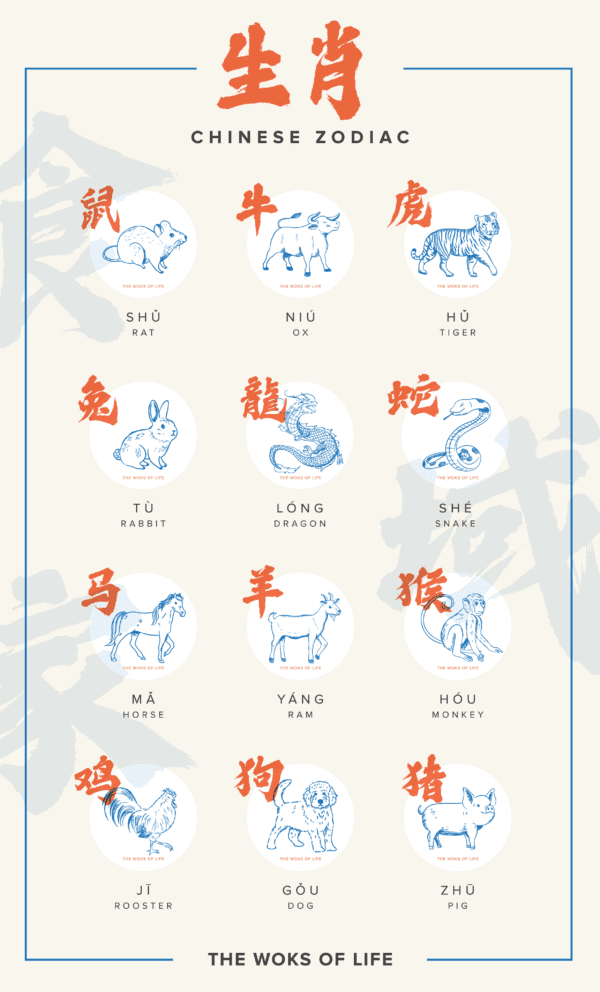
Our family always finds time to get together to read and review our Chinese horoscopes for the upcoming year. Sometimes we use online sources, and other times we use Chinese Zodiac books.
Depending upon each person’s animal sign, it may be an auspicious year for one’s career, love life, or family life.
Regardless of whether the upcoming year is auspicious or a year for caution, horoscopes always come with reminders to be aware of certain areas of your life. Certain months may bring good fortune, while other times, you should lie low.
We also like to review last year’s results to see how predictions for the past year went.
Are we a superstitious family? Maybe a little. But regardless, we have lots of fun and family time together talking about our outlook for the new year.
Happy new year, everyone! 新年快乐!
